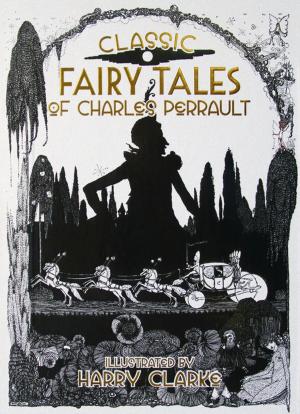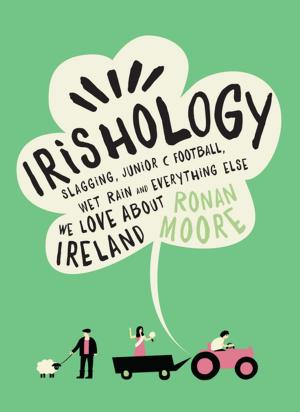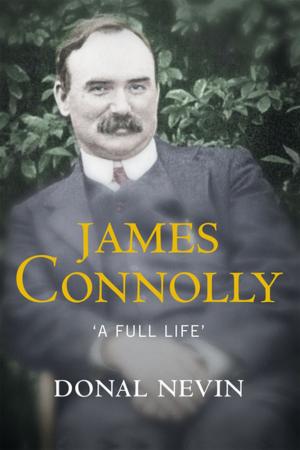A Social History of Women in Ireland, 1870–1970
An Exploration of the Changing Role and Status of Women in Irish Society
Nonfiction, History, Modern, 19th Century, Social & Cultural Studies, Social Science| Author: | Dr Rosemary Cullen Owens | ISBN: | 9780717164554 |
| Publisher: | Gill Books | Publication: | October 25, 2005 |
| Imprint: | Gill Books | Language: | English |
| Author: | Dr Rosemary Cullen Owens |
| ISBN: | 9780717164554 |
| Publisher: | Gill Books |
| Publication: | October 25, 2005 |
| Imprint: | Gill Books |
| Language: | English |
A Social History of Women in Ireland is an important and overdue book that explores the role and status of women in Ireland from 1870 until 1970, looking at politics, sociology, marriage patterns, religion, education and work among other topics. It provides a vital missing piece in the jigsaw of modern Irish history.
Using a combination of primary research and published works, A Social History of Women in Ireland explores the role and status of women in Ireland. It examines lifestyle options available to women during this period as well as providing an overview of the forces working for change within Irish society. In bringing together a wide-ranging portfolio of material, A Social History of Women in Ireland 1870–1970 fills an important gap in the literature of the period by focusing on the experiences of Irish women, a group so often overlooked in histories of revolutionary men and prominent politicians.
Crucial to a determination of the status of women throughout this period is an examination of the choices available regarding work, marriage and emigration. Rosemary Cullen Owens stresses at all times the importance of class and land ownership as key determinants for women’s lives. A decrease in home industries allied to increasing mechanisation on the farm resulted in a contraction of labour opportunities for rural women. With the establishment of an independent farming class, the distinguishing criteria for status in rural Ireland became ownership of land, in which single-minded patriarchal figures dominated. In this context, the position of women declined, and a society evolved with a high pattern of late-age marriages, large numbers of unwed sons and daughters, and an accepted pattern of emigration.
In the cities and towns, the condition of lower-working-class women was especially distressing for most of the period, with particular problems regarding housing, health and sanitation. Through the work of campaigning activists, equal educational and political rights were eventually attained. From the early 1900s there was some expansion in female employment in shops, offices and industry, but domestic service remained a high source of employment. For middle-class women, employment opportunities were limited and usually disappeared on marriage. The civil service — a major employer in an economy that was generally un-dynamic and stagnant — operated a bar on married women for much of the period.
Rosemary Cullen Owens not merely traces these injustices but also the campaigns fought to right them. She locates these struggles in the wider social context in which they took place. This important book restores balance to the narrative of modern Irish history, changing the focus from key male political figures to society at large by unveiling the often forgotten story of the country’s women over a tumultuous century of change. In doing so, Rosemary Cullen Owens enriches our understanding of Irish history from 1870 to 1970.
A Social History of Women in Ireland: Table of Contents
- Part 1. Irishwomen in the Nineteenth Century
- ‘A progressively widening set of objectives’—The Early Women’s Movement
- Developments in Female Education
- Faith and Philanthropy—Women and Religion
- Part 2. A New Century—Action and Reaction
- Radical Suffrage Campaign
- Feminism and Nationalism
- Pacifism, Militarism and Republicanism
- Part 3. Marriage, Motherhood and Work
- The Social and Economic Role of Women in Post-Famine Ireland
- Trade Unions and Irish Women
- Women and Work
- Part 4. Women in the New Irish State
- The Quest for Equal Citizenship 1922–1938
- The Politicisation of Women Mid-Twentieth Century
A Social History of Women in Ireland is an important and overdue book that explores the role and status of women in Ireland from 1870 until 1970, looking at politics, sociology, marriage patterns, religion, education and work among other topics. It provides a vital missing piece in the jigsaw of modern Irish history.
Using a combination of primary research and published works, A Social History of Women in Ireland explores the role and status of women in Ireland. It examines lifestyle options available to women during this period as well as providing an overview of the forces working for change within Irish society. In bringing together a wide-ranging portfolio of material, A Social History of Women in Ireland 1870–1970 fills an important gap in the literature of the period by focusing on the experiences of Irish women, a group so often overlooked in histories of revolutionary men and prominent politicians.
Crucial to a determination of the status of women throughout this period is an examination of the choices available regarding work, marriage and emigration. Rosemary Cullen Owens stresses at all times the importance of class and land ownership as key determinants for women’s lives. A decrease in home industries allied to increasing mechanisation on the farm resulted in a contraction of labour opportunities for rural women. With the establishment of an independent farming class, the distinguishing criteria for status in rural Ireland became ownership of land, in which single-minded patriarchal figures dominated. In this context, the position of women declined, and a society evolved with a high pattern of late-age marriages, large numbers of unwed sons and daughters, and an accepted pattern of emigration.
In the cities and towns, the condition of lower-working-class women was especially distressing for most of the period, with particular problems regarding housing, health and sanitation. Through the work of campaigning activists, equal educational and political rights were eventually attained. From the early 1900s there was some expansion in female employment in shops, offices and industry, but domestic service remained a high source of employment. For middle-class women, employment opportunities were limited and usually disappeared on marriage. The civil service — a major employer in an economy that was generally un-dynamic and stagnant — operated a bar on married women for much of the period.
Rosemary Cullen Owens not merely traces these injustices but also the campaigns fought to right them. She locates these struggles in the wider social context in which they took place. This important book restores balance to the narrative of modern Irish history, changing the focus from key male political figures to society at large by unveiling the often forgotten story of the country’s women over a tumultuous century of change. In doing so, Rosemary Cullen Owens enriches our understanding of Irish history from 1870 to 1970.
A Social History of Women in Ireland: Table of Contents
- Part 1. Irishwomen in the Nineteenth Century
- ‘A progressively widening set of objectives’—The Early Women’s Movement
- Developments in Female Education
- Faith and Philanthropy—Women and Religion
- Part 2. A New Century—Action and Reaction
- Radical Suffrage Campaign
- Feminism and Nationalism
- Pacifism, Militarism and Republicanism
- Part 3. Marriage, Motherhood and Work
- The Social and Economic Role of Women in Post-Famine Ireland
- Trade Unions and Irish Women
- Women and Work
- Part 4. Women in the New Irish State
- The Quest for Equal Citizenship 1922–1938
- The Politicisation of Women Mid-Twentieth Century















